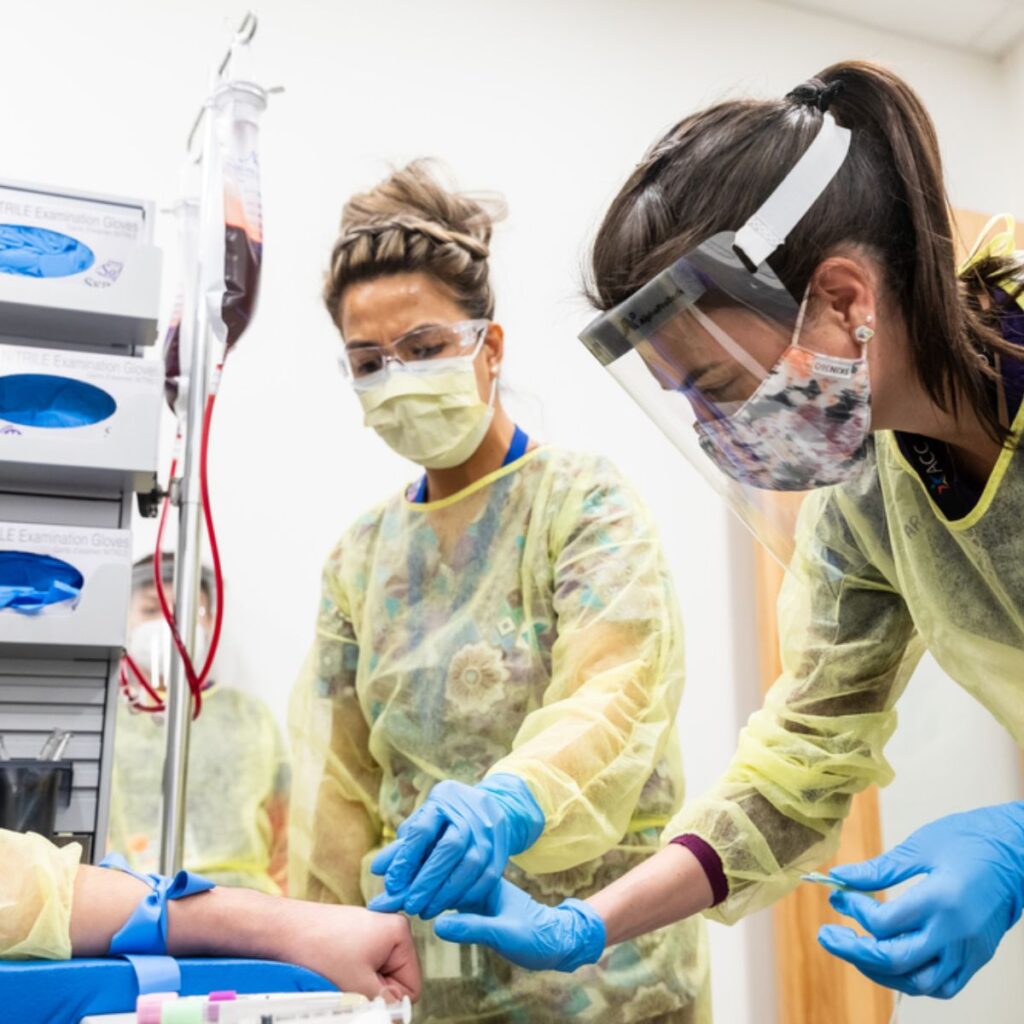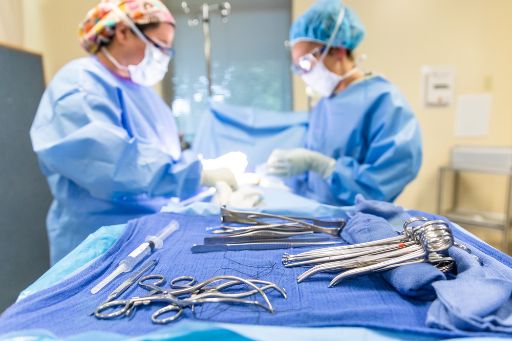Demand for healthcare professionals continues to grow. The impact of the COVID-19 pandemic, along with an aging population, the growth of healthcare IT, and a healthcare provider shortage, have all made the healthcare sector one of the largest sources of new jobs, according to the Bureau of Labor Statistics (BLS).
For this reason, many students and job changers are interested in healthcare. Before deciding on a specific job, though, it’s important to ask: what healthcare career is right for me?
In this Article
5 Reasons to Work in Healthcare
Ask professionals why they chose to work in healthcare, and you’ll get a variety of reasons: the work is interesting, the salaries are higher than average, high demand equals job security, and more. Other reasons include wanting to care for people and wanting to work in a STEM (science, technology, engineering, math) field. The top five reasons to work in healthcare include:
1. Healthcare Careers: Salary
Depending on the specific job, the median wage for healthcare professionals is higher than the median wage for all professions: $80,820 compared to $48,060, according to the BLS. Students can research different healthcare occupations to find out what the different healthcare jobs pay and the latest projections on growth.
2. High Demand for Healthcare Workers
Healthcare expertise is in high demand. The nursing shortage is one example; hospitals, clinics, and public agencies have been struggling to hire enough nursing staff. High demand has caused an increase in travel nursing, resulting in very high wages for nurses. Other professionals are in demand also; many counties and states suffer from healthcare provider shortages, impacting the quality of care.
3. Caring for Others
Doctors and nurses speak about the rewards of caring for others as a top reason to become a medical professional. This caring nature can lead to a satisfying career, although it is not without challenges. Nurses and doctors can experience burnout, or compassion fatigue. Establishing a work-life balance is important for clinical and other staff.
4. Interesting Work
Whether you choose a clinical (medical or patient-focused) role or one that is administrative or technical, working in healthcare can always be interesting. Medical device development, cybersecurity, the role of AI in healthcare, and healthcare data analysis are all promising healthcare fields.
5. Job Security
Many healthcare professionals experience high job security. For many students looking at career options, job security is a huge advantage. When you know the skills you’re learning will continue to be in high demand, it can help you make a decision about a career. Highly secure healthcare jobs include nurse practitioner, occupational therapy assistant, and medical health services manager.
Education for Healthcare Careers
When researching what career in healthcare is right for you, it’s important to take education into consideration. An education in healthcare will require at least an associate’s degree, such as an ADN (associate degree in nursing), or certificates for such positions as phlebotomist.

A general studies in pre-health sciences program is a great place to start.
At ACC, certificates are stackable, which means that each time a student completes one, most if not all of those credits count toward the next one. This is an efficient way to earn certificates and an associate’s degree. It allows students to skill up and get into the workforce quickly, earning money while they get their next certificate.
ACC even offers a bachelor of nursing (BSN). This lets eligible students get their bachelor’s degree in a year, paving the way for higher wages, advanced nursing degrees, and leadership roles.
Take the first step toward a fascinating career in health sciences. Explore different careers in healthcare at ACC such as the programs below.
Nursing
Nursing is a clinical profession, which means that nurses treat and care for patients. ACC nursing students can choose the RN (Registered Nurse) or LVN (Licensed Vocational Nurse) through an associate degree program. ACC also has an RN-to-BSN program for nurses who want to grow their careers and salary. The ACC nursing program has one of the highest NCLEX (national nursing exam) pass rates in Texas.
Salaries for nurses vary, with RNs earning a median wage of $41.38 per hour in 2023, and LVNs earning $28.72 per hour, according to the Bureau of Labor Statistics.
Dental Hygiene
Dental hygienists learn to care for patients’ teeth. They can identify oral issues and help educate patients on dental care. Students earn an associate’s degree. Median wage for a dental hygienist was just over $42 per hour, per the BLS.
Radiology Technician
ACC offers an associate’s degree in diagnostic imaging. Students can also earn advanced certificates in cardiovascular intervention, magnetic resonance imaging, and cardiovascular interventional technology. In 2023 the median annual wage was $36.55 per hour.
Pharmacy Technician
Students can earn a pharmacy technician associate degree as well as advanced certificates. ACC offers training in state-of-the-art facilities. In 2021 the median annual wage for a pharmacy technician was $19.37 per hour.
Occupational Therapy Assistant
Occupational therapy assistants work in hospitals, clinics, and other healthcare settings. ACC’s program has a 100% certification pass rate. Median annual wage was $31.47 per hour in 2023.
Phlebotomy
Start your healthcare career with a certificate in phlebotomy. Learn to draw blood, the principles of labwork, and other healthcare skills. Students can use their phlebotomy certificate to enter the workforce and as the basis for more advanced studies. Median annual wage was about $20.10 per hour in 2023.
Emergency Medical Services
Earn an associate’s degree or certificates in emergency medical response. Students learn how to assess, treat, and transport patients in emergency situations. Median annual wage was $21.53 per hour in 2023.
Surgical Technician
Students learn how to assist in surgeries in ACC’s surgical tech program. Skills include surgical equipment prep, specimen handling, and operating room procedures. Students can earn an associate’s degree. Median annual wage was $29.03 per hour in 2023.
Veterinary Technician
Learn to care for four-legged family members. Students can earn an associate’s degree, and start with the same general studies in pre-health sciences as their counterparts. Median annual wage was $21.03 per hour in 2023.
Take Your First Step to a New Career
“What healthcare career is right for me?” Hopefully this overview gave you a few ideas. Take the next step and explore health sciences at ACC.
Tags: health sciences, healthcare, healthcare career, nursing
Back to Top

